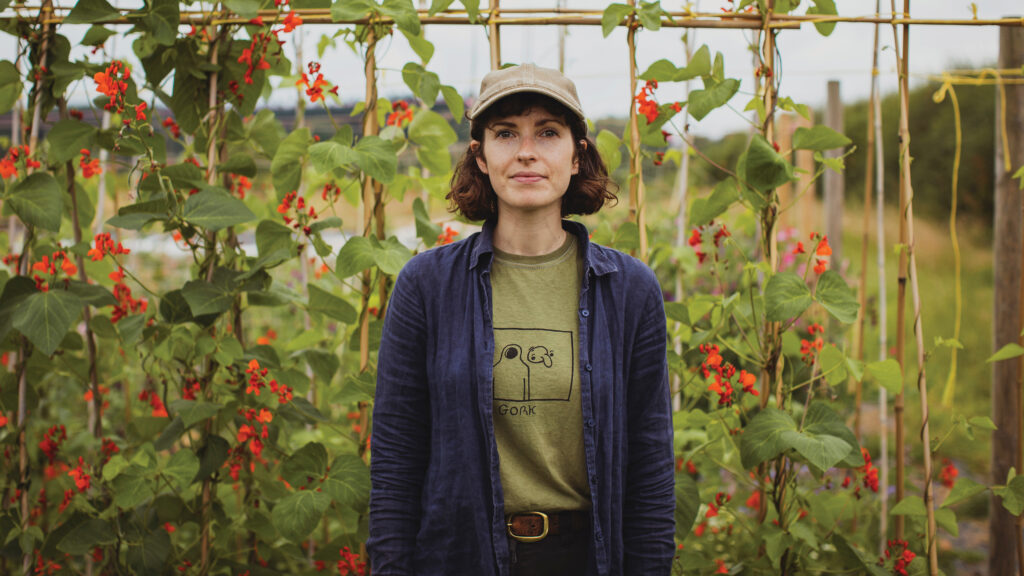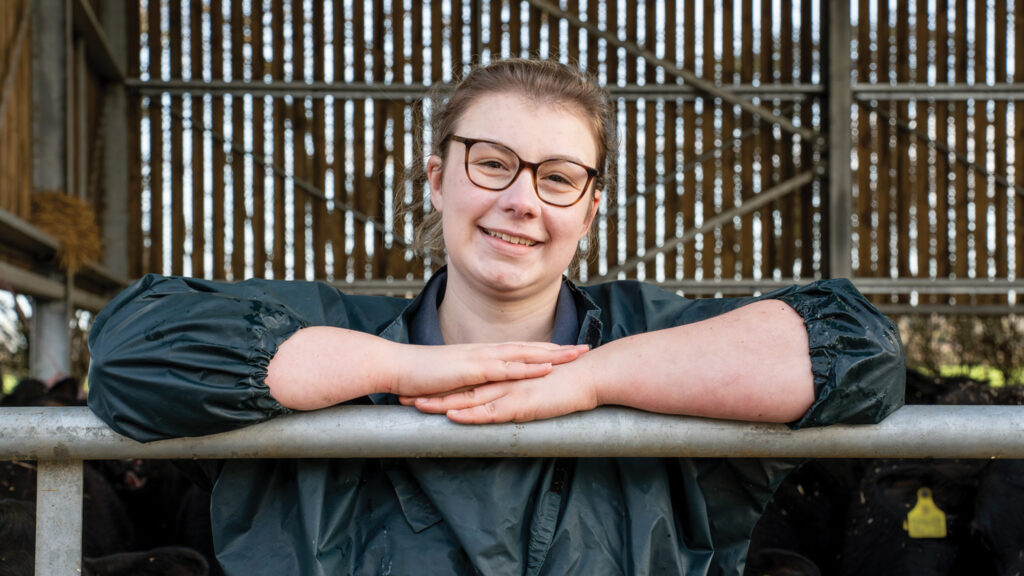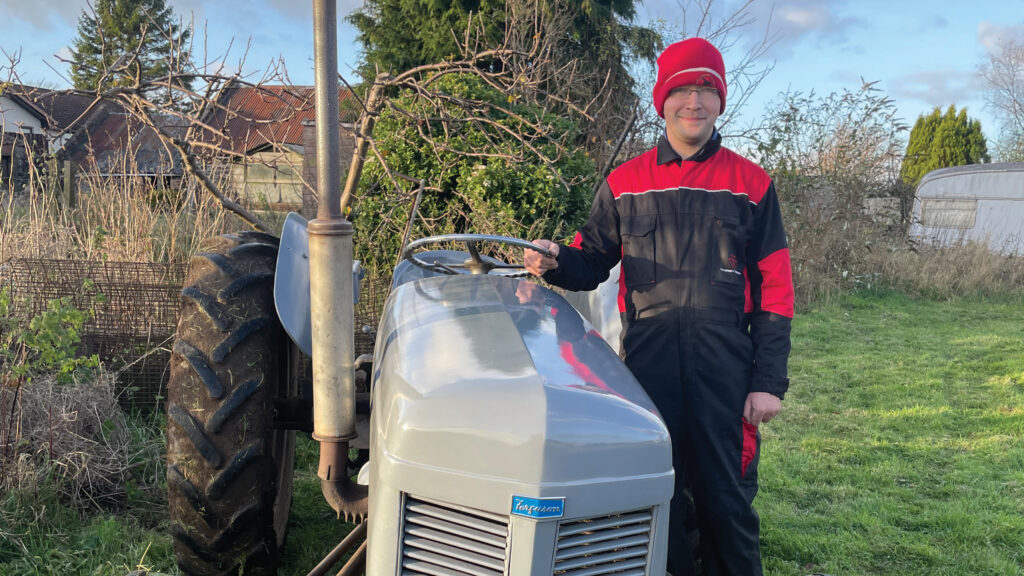How agriculture can support socialising for neurodiverse people
 © Telling Photography
© Telling Photography Social isolation can be a common feature for people with neurodiversities, especially so for children and teenagers.
Occasions such as a barn dance or a formal dinner, which are undemanding for neurotypical people, can be completely overwhelming for someone with attention deficit hyperactivity disorder (ADHD) or autism.
See also: Why neurodiversity and entrepreneurship go hand-in-hand in farming
People with autism are four times more likely to be lonely according to a 2023 study by Swansea University and Brighton and Sussex Medical School.
Furthermore, 79% of autistic people experience social isolation, research by the National Autistic Society has found.
Group settings with competing demands can be particularly challenging, so much so that many will limit social interactions while others simply won’t go, cutting themselves off from most forms of socialising.
Most neurodivergent people want to have social interactions, connections and friendships.
However, differences in the way they communicate compared to neurotypical people, or challenges caused by the environments where socialising happens, can make this difficult.
The results of a recent Farmers Weekly survey, which found that the rate of neurodiversity in agriculture could be double that found in the general population, suggests that more needs to be done to support neurodiverse individuals in the sector.
Fifty-nine percent of respondents who identified as neurodivergent said it impacts their communication and social interaction.
Forty-eight percent said the ability to connect with others who have shared experiences would make a difference to them.
Inclusive attitude
For Jo Poulton, a new entrant in agriculture, an ADHD diagnosis in 2022 gave her clarity on why she had always struggled in social situations.
She sought a diagnosis after attending a conference linked to farming.
“One of the speakers gave a talk about starting up a smallholding, but also spoke about how she had ADHD,” Jo explains.

New entrant, Jo Poulton © Jo Poulton
“I went to that conference intending to learn more about farming, but came away realising this extra thing about myself because more than half the symptoms that the speaker listed applied to me too.”
Although Jo believes there is now more understanding and kindness shown towards neurodivergent people, more could be done in the food and farming sectors to prevent them from being excluded from valuable opportunities to interact.
As co-head grower at the Bristol-based Community Supported Agriculture project Sims Hill Shared Harvest, Jo uses various strategies for coping with the interactions.
She applies these same techniques when socialising with friends or networking more generally – situations where she can struggle with the intensity of being around people.
“Mentally preparing myself for the situation helps, and also making others aware of my ADHD so that they can understand why I might be behaving in a certain way, that it is not because I am being rude.
“If I’m not in a big social mood it can be overwhelming if two or three people ask me different questions all at once.
“When that happens I have to take myself off for a moment or two to do some breathing exercises.
“There will be differences for others on the spectrum, but it certainly helps me if people are patient while I work through it.”
What is Young Farmers doing?
For many young people working in agriculture or living in rural communities, the Young Farmers’ Clubs movement forms a significant chunk of their social lives with its events, competitions and other activities.
It is standard practice at all National Federation of Young Farmers’ Clubs events and activities to encourage members to make organisers aware in advance if they need any adjustments to allow them to fully participate, and that includes neurodiversities, says chief officer James Eckley.
As the majority of members are under 18, conversations are had with parents and guardians, too.
Clubs are given guidance on welfare support and providing “quiet” spaces at social events.
The organisation’s welfare and safeguarding training raises awareness of the different behaviours that could point to someone having an additional need, James adds.
“This training equips officers with the confidence to have the necessary conversations to put in place support as required.”
Case study: Molly Meade, vet student, Hertfordshire

Vet student Molly Mead © Vet Partners
For Hertfordshire farmer’s daughter Molly Meade, who has diagnoses for autism and ADHD, each social situation presents a unique set of challenges.
An overwhelming need to be firmly in control means Molly requires the comfort of an escape route from a social gathering.
Therefore, as a non-drinker, she nearly always drives. “I have to know that I can leave when I want to and often have to do so very abruptly,” she says.
“I’m more likely to go to an event if I know that someone who I consider to be a ‘safe’ person will be there.”
Advance knowledge of what the event will involve also helps.
Molly, a student at Harper and Keele Veterinary School, has worked hard to prevent her conditions isolating her.
She recognises how important it is to get out and meet people and, as such, has served as an NFU Student Ambassador and was a member of Young Farmers.
At a national level, she reckons that the National Federation of Young Farmers’ Clubs is doing a good job at promoting inclusivity and hopes this passes down to club and individual level.
“It’s most crucial going forward that individuals take responsibility to make sure their club provides safe spaces for all kinds of people to be themselves.”
While attitudes to neurodiversity are changing, Molly suggests that the subject still tends to provoke a “collective rolling of eyes’’.
“Farming is going through very challenging times and attitudes need to change otherwise it will drive people away.”
Case study: David Nicholson, smallholder, Fife

© David Nicholson
Walking into a room crammed with people can be a nerve-racking experience, but for smallholder David Nicholson that prospect can be a barrier to socialising.
The former sheep farmer-turned-vegetable grower was diagnosed with autism in 2008 when he was 18.
Farming, with its outdoor environment and opportunity to work in nature, was his lifeline as this is where he thrived.
David loves being with other farmers at agricultural shows and catching up with friends, but he does shy away from many situations.
“I’m not comfortable going to a social occasion where there are a lot of people in the room, I find that very difficult to handle.
“It is always better for me to have a few people who I know there, particularly if it is a big social event, so that they can introduce me.”
David is not a fan of the unexpected or events where the noise level is loud.
“People have been very kind to make adjustments to make things easier for me, to make sure I can be as comfortable in a situation as they are.
“At a formal dinner, it is a big help if I am sat at a table with people I am comfortable with, otherwise I can feel isolated.”
From his own experiences, social inclusion for neurodivergent people within the farming community is improving but, he says there is still a long way to go, describing it as a “work in progress”.
“We are on a journey and it will take time but things are moving in the right direction.”
Level the Field
Our campaign, Level the Field, aims to make agriculture fairer, more equitable and more inviting for everyone.
By engaging people and organisations across our industry, Level the Field will champion inclusivity for the benefit of farm businesses and all who work in them.
The campaign kicked off in 2024, focusing on women in farming, and is now in its second year, focusing on neurodiversity.
See more on our Level the Field campaign hub.
